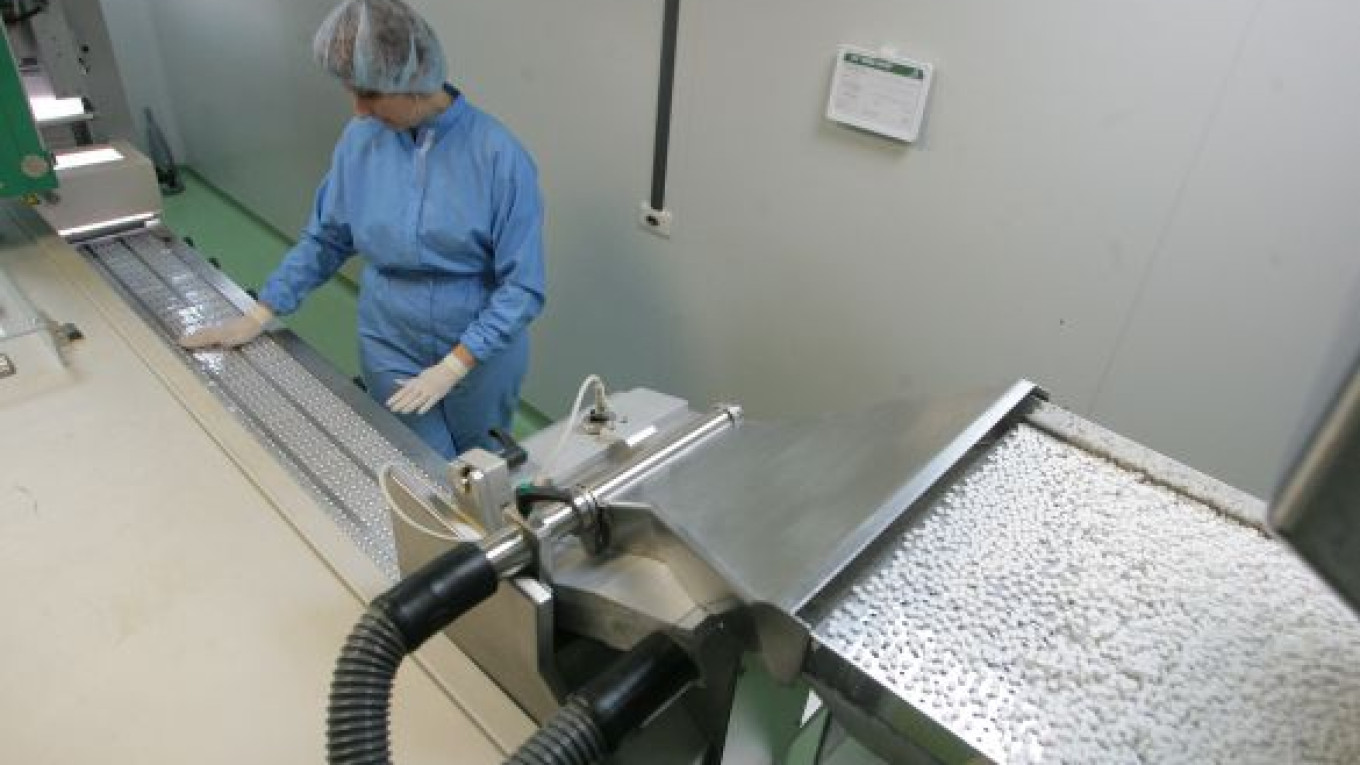VORSINO, Kaluga Region — The Kaluga government plans to establish a pharmaceutical manufacturing hub in the region that could net $1 billion of investment by local and international companies, Governor Anatoly Artamonov said Tuesday.
The hub will start with six residents — Denmark’s Novo Nordisk, British-Swedish AstraZeneca, Germany’s Stada and Italy’s Menarini, as well as domestic drugmakers Nearmedic Plus and Sphera-Pharm — that already have a presence in the region, having jointly invested more than $500 million in their production facilities, Artamonov said at a roundtable discussion about the prospects of the pharmaceutical industry.
The regional government is in talks with another four potential investors to join the hub. This could double existing investment by 2020, he said without specifying the companies because the negotiation process in still under way.
The hub, which will be located in the city of Kaluga and two nearby towns, Vorsino and Obninsk, will also include a personnel training center, since the new initiative will require about 1,500 new staff, Artamonov said.
The project is likely to succeed because it will be able to situate various companies operating in different sectors of the pharmaceutical market on a single territory, said Nikolai Demidov, chief executive of Pharmexpert, a market researcher.
“There’s no other region that could get six different pharmaceutical companies localizing production over a short period of time,” he said by telephone, adding that from this point of view, Kaluga had outdone St. Petersburg, the country’s other venue that aims to establish extensive pharmaceutical manufacturing.
The overall investment by foreign companies in Russia’s pharmaceutical industry over the last three years has exceeded 800 million euros ($992 million), said Sergei Tsyb, head of the Industry and Trade Ministry’s department for chemical engineering and bioengineering technologies. He added that this includes various types of investment, with foreign drugmakers setting up manufacturing, buying into local companies or establishing joint ventures with them.
In the latest example of such collaboration, U.S. pharmaceutical giant Merck agreed to start production of some of its medications for the Russian market on the facilities of local drugmaker Akrikhin.
Manufacturing will start at the end of this year, with Merck providing the technology transfer, the companies said in a joint statement Tuesday.
Meanwhile, the government plans to benefit from the fast pace of growth of Russia’s pharmaceutical market by attracting more companies.
“It’s our big advantage, and thanks to this potential we are very attractive from the point of view of raising investment from big foreign companies and Russian companies,” Tsyb said at the same roundtable organized by AstraZeneca.
The country’s pharmaceutical industry grew 17 percent last year and is expected to maintain this growth rate in 2012, Demidov said, adding that the industry’s total revenue might reach $23 billion this year.
A Message from The Moscow Times:
Dear readers,
We are facing unprecedented challenges. Russia's Prosecutor General's Office has designated The Moscow Times as an "undesirable" organization, criminalizing our work and putting our staff at risk of prosecution. This follows our earlier unjust labeling as a "foreign agent."
These actions are direct attempts to silence independent journalism in Russia. The authorities claim our work "discredits the decisions of the Russian leadership." We see things differently: we strive to provide accurate, unbiased reporting on Russia.
We, the journalists of The Moscow Times, refuse to be silenced. But to continue our work, we need your help.
Your support, no matter how small, makes a world of difference. If you can, please support us monthly starting from just $2. It's quick to set up, and every contribution makes a significant impact.
By supporting The Moscow Times, you're defending open, independent journalism in the face of repression. Thank you for standing with us.
Remind me later.


